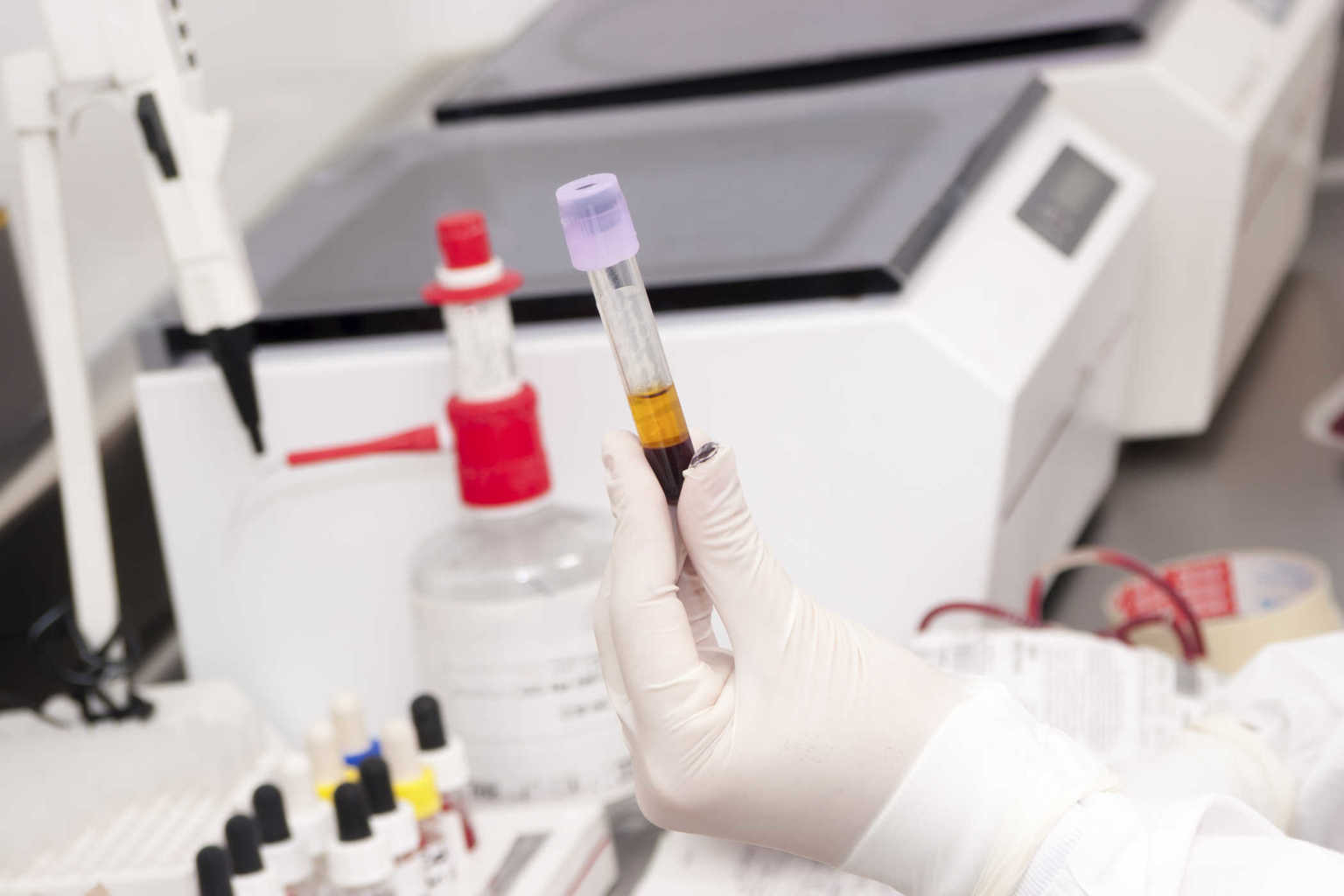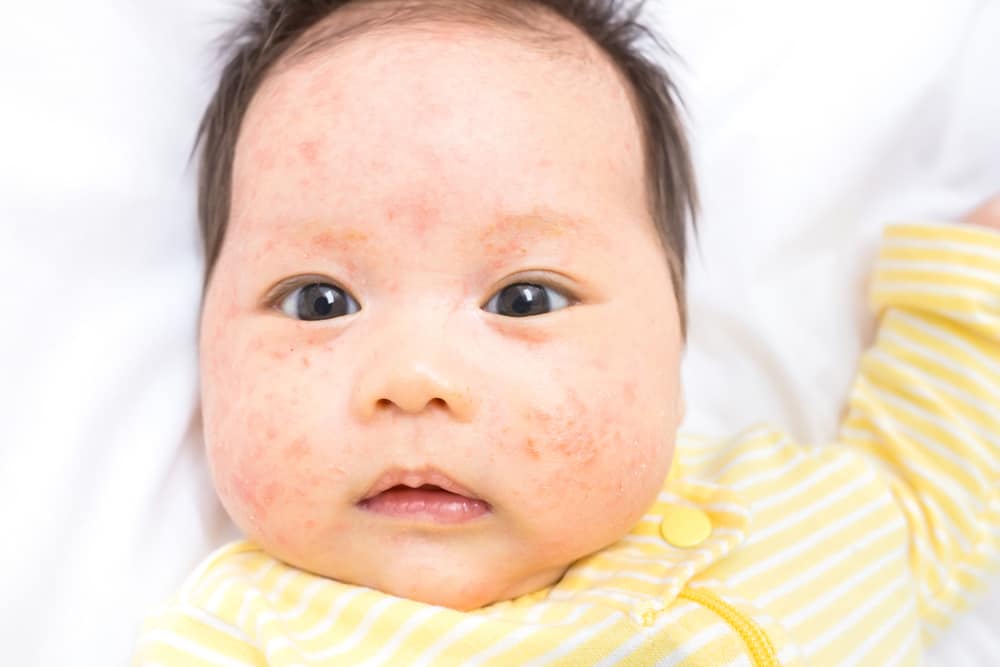Contents:
- Medical Video: Autosomal Recessive Inheritance - Genetics
- What is hemochromatosis?
- What are the symptoms of hemochromatosis?
- How is hemochromatosis diagnosed and treated?
- About the lack of Alpha-1 Antitrypsin
- What are the symptoms of a lack of Alpha-1 Antitrypsin?
- How are Alpha-1 Antitrypsin deficiencies diagnosed and treated?
- Is this inherited liver disease dangerous?
Medical Video: Autosomal Recessive Inheritance - Genetics
There are two of the most common types of hereditary liver disease, namely hemochromatosis and alpha-1 antitrypsin. If your doctor says that you have one of these hereditary liver diseases, you and your family must learn more about this disease. When you have knowledge about your illness, you can control and can motivate yourself more in the treatment process and help your relatives prevent the risk of getting this disease.
What is hemochromatosis?
Hemochromatosis is a disease in which iron is collected in the liver and other organs. This disease is one of the most common hereditary diseases. Morbidity reaches one in every 200 people have this disease. When someone in your family has this disorder, other people are also at risk.
The secondary form of hemochromatosis is not genetic and is caused by other diseases, such as thalassemia, genetic blood disorders that cause anemia.
Excess iron associated with hemochromatosis more often affects men than women. Because women lose blood through menstruation, women may not show signs of excess iron until after menopause. That means that men in your family are at higher risk of developing this disease. hemochromatosis is more common in people of Western European descent.
What are the symptoms of hemochromatosis?
Symptoms of hemochromatosis may include:
- Liver disease
- Joint pain
- Fatigue
- Weight loss without cause
- Darkening of the skin is often referred to as "bronzing"
- Stomach ache
- Loss of sexual arousal
People with hemochromatosis may also have signs of diabetes and heart disease and can develop liver cancer, cirrhosis, testicular atrophy, and infertility.
How is hemochromatosis diagnosed and treated?
If you suspect that you have hemochromatosis, you need to do a blood test at the hospital to look for excess iron in your blood. If excess iron is found in your body, a genetic blood test (DNA hemochromatosis test) can be done. Genetic tests are also used to examine your family members who are suspected of having a positive genetic test. The goal of treatment is to remove excess iron from your body, and reduce the symptoms or complications that have resulted from this disease.
Excess iron is removed from the body by a procedure called phlebotomy. During the procedure, one-half liter of blood is removed from your body every week for a period of up to two or three years until the iron buildup decreases.
After this initial treatment, phlebotomies will decrease. Frequency varies based on individual circumstances.
To help keep iron levels low, you should avoid iron, which is most often found in vitamins. If you have hemochromatosis, a doctor or nutritionist can make the right diet for you. Also, you should avoid alcohol.
If your hemochromatosis has caused cirrhosis, the risk of liver cancer is higher. As a result, you should do cancer screening regularly.
About the lack of Alpha-1 Antitrypsin
In this type of hereditary liver disease, a significant liver protein known as alpha-1 antitrypsin can be deficient or at a low level of normal in the blood. People with alpha-1 antitrypsin are able to produce this protein; However, this disease prevents it from entering the bloodstream and eventually accumulates in the liver.
Alpha-1 antitrypsin protein protects the lungs from damage caused by natural enzymes. When the protein level is too low or absent, the lungs can become damaged, cause breathing difficulties and, in many people end up with the condition, emphysema. People with this disease are also at risk of developing cirrhosis.
What are the symptoms of a lack of Alpha-1 Antitrypsin?
You will feel shortness of breath or wheezing when you are exposed to alpha-1 antitrypsin because it is the first symptom in your lungs. You can also experience unexplained weight loss barrel shaped chest, which is generally associated with the appearance of emphysema. That is also a sign of the condition. When the disease progresses, certain symptoms of emphysema or cirrhosis include:
- Fatigue
- Chronic cough
- Swelling of the ankles and feet
- Jaundice (yellow on the skin)
- Fluid in the abdomen (ascites)
How are Alpha-1 Antitrypsin deficiencies diagnosed and treated?
If you have some physical signs like barrel shaped chest and respiratory problems, your doctor may suspect you have alpha-1 antitrypsin. Your doctor may recommend a blood test for you. This tests specifically for alpha-1 antitrypsin protein and will help to confirm the diagnosis.
There is no definite treatment to cure alpha-1 antitrypsin but replacing proteins in the bloodstream can treat you. However, experts do not know clearly how effective this technique is and who should accept it. Another approach to treating alpha-1 antitrypsin involves the treatment of complications such as emphysema and cirrhosis. These include antibiotics to fight respiratory infections, inhale drugs to make breathing easier, and diuretics and other drugs to reduce fluid buildup in the stomach.
You must avoid alcohol, stop smoking, and eat healthy food. Your habits can help keep symptoms and complications from becoming severe. A doctor or nutritionist can recommend a diet that is right for you.
Because this disease affects the lungs, people with this condition will be more susceptible to respiratory infections. Therefore, your doctor may recommend flu and pneumonia vaccinations to help you prevent this infection. If you feel you are having a cold or cough, contact your doctor immediately so that treatment can be started as soon as possible. Sometimes, the condition of the lungs or liver can deteriorate despite treatment. In such cases, liver transplantation may be needed.
Is this inherited liver disease dangerous?
With proper treatment, hemochromatosis and alpha-1 deficiency are usually not fatal. However, complications associated with the disease can cause fatal conditions. It is very important for people with hereditary liver disease to do things that can keep them healthy.












